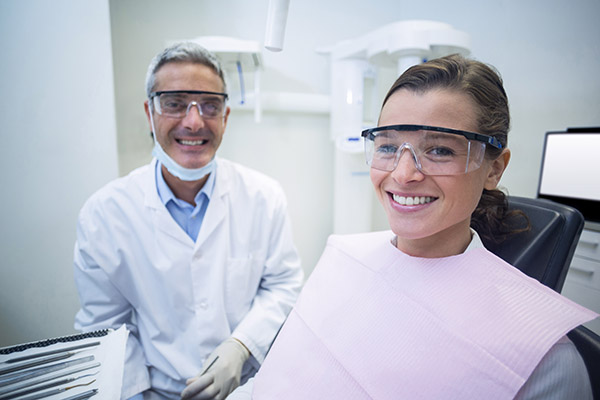Popular Treatments for Misaligned Jaws and Teeth and Bite Correction

For many of us, bite correction was part of our childhoods because our teeth did not fit together and be aligned how they should to ensure optimal oral health later in life. The condition of having misaligned teeth is called a bad bite or malocclusion. The most common types of malocclusion are overbites and underbites.
A second, more serious reason our teeth do not line up is poor jaw alignment. The first step to fixing a bad bite or misaligned jaw is to learn about the treatments used to correct the faults.
What causes a bad bite?
Overbites, underbites, and crossbites are the most common types of malocclusion. An overbite happens when the upper teeth overlap the lower teeth. An underbite occurs when the lower teeth overlap the upper teeth.
There are two kinds of bad bites. The first type is dental malocclusion, where the issue is limited to the teeth and does not extend to the jawbone. Dental malocclusion is caused by:
- Rear teeth that were pulled out or never grew
- Extra teeth in the mouth
- Childhood habits like thumb sucking and too much pacifier use
- Tongue thrusting that pushes the teeth forward
Bite correction treatments for dental overbites and underbites
1. Braces
Braces are used to correct overbites in both adults and children. For children, treatment begins between ages eight and fourteen. Treating overbites in childhood is extremely useful because the teeth and jaw are not fully formed and are easy to alter.
Adult braces are also effective orthodontic treatments. However, it takes longer to correct an overbite in an adult than it does in a child.
2. Tooth removal
This is a treatment method used to remove an overbite caused by too many teeth in the mouth. In children and teens, it is remaining baby teeth that are removed. In adults, tooth removal is only done in cases of severe overbites.
3. Replacement of the rear teeth
For overbites caused by missing or damaged rear teeth, tooth replacement and restoration are used to correct overbites.
4. Veneers
Veneers can be used to shape the teeth and correct slight overbites
Treatments for skeletal malocclusion and jaw misalignment
A skeletal malocclusion is a bad bite caused by a fault in the structure or alignment of the bones in the mouth.
In many cases, the cause of an overbite is limited to the teeth. In contrast, most underbites are caused by the misalignment of the lower jaw, a condition that is present from birth. A severe underbite causes health issues like eating difficulties, speaking difficulties and chronic jaw pain.
Since jaw misalignment is the cause of skeletal malocclusion, jaw correction treatment also treats skeletal malocclusion. The most common jaw correction treatments are:
1. Headgear braces
They fix crooked teeth, crowded teeth, and misaligned jaws. Retraction headgear braces pull back the upper jaw to correct a severe underbite. Protraction headgear braces pull the lower jaw forward to correct a severe overbite.
2. Upper jaw expanders
These are used to correct a skeletal underbite. A jaw expander is a wire frame that is fitted into the upper palate. It works by widening the upper jaw so that it is pulled back to the level of the lower jaw.
3. Jaw surgery
Sometimes, orthodontic treatments like braces and face masks can only do so much. Jaw correction surgery may be the only option. The treatment takes around three years. The first part of this treatment involves the use of braces and other orthodontic treatments to get the tooth and jaw realignment started.
The second part of the treatment is orthognathic jaw surgery, where a maxillofacial surgeon repositions or reshapes the jaw with metal plates, screws, and wires.
Jaw surgery should only be considered in truly extreme cases.
The dentist knows best
Bite correction rarely requires surgery; an orthodontic solution usually works fine. Whatever the problem, a dentist will recommend a solution that is tailor-made to your particular set of needs.
Schedule a consultation with one of our dentists to explore your options.
Let's get started…
Looking for bite correction treatment near the 46032 area? Call Smiles in the Village Dentistry at (317) 218-7985.
Related Posts
A smile makeover is a combination of cosmetic dental treatments that are performed to transform the way that your smile looks. While the procedure's primary purpose is to improve the aesthetics of a patient’s smile, a few of the treatments used, like the placement of crowns, also provide restorative benefits.Many patients are thinking about getting…
Getting a smile makeover can transform your smile and your life. Aging, decay, and trauma contribute to the dullness of your smile. Decades ago, this would take some time to correct. The available technologies in dentistry today can make any dental issue disappear. One of the well-known procedures is the smile makeover. If you want…
Having a smile makeover involves changing the external and, when necessary, internal parts of your teeth. This may include the gums and jawbone as well. Your dentist will work with you in achieving your cosmetic and functional goals. If you want to know how a smile makeover can provide dental restoration, here are the details.Missing…
Getting a smile makeover involves one or more procedures. It depends on the dental condition of the patient. The number of procedures also depends on what the dentist thinks would give the most favorable results. You and your dentist can talk about these and more at your first meeting. If you want to know what…


